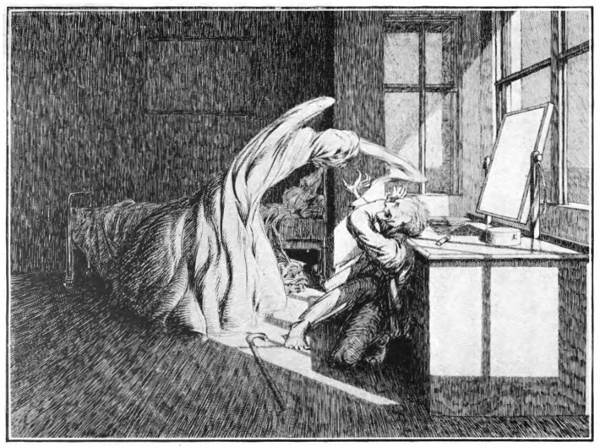
In M.R. James’s superbly creepy 1904 short story “Oh, Whistle, and I’ll Come to You My Lad,” a Cambridge professor investigating a Templar ruin finds a whistle bearing the inscription “Quis est iste, qui venit?”
“I suppose I am a little rusty in my Latin,” he thinks. “It ought to mean, ‘Who is this who is coming?’ Well, the best way to find out is evidently to whistle for him.” And he does, and everything follows from there.
“It’s a rare use by M.R. James of Latin as a pivotal plot point, and a wonderful pedagogic caution to study hard in your lessons or else be grabbed by a ghoul,” writes Roger Clarke in A Natural History of Ghosts.
James says no more about it, but “a Latin scholar would know that iste was a pejorative term, that whoever was coming is unpleasant or, indeed, not exactly human. It should be translated as ‘What is this revolting thing coming towards me?'”
